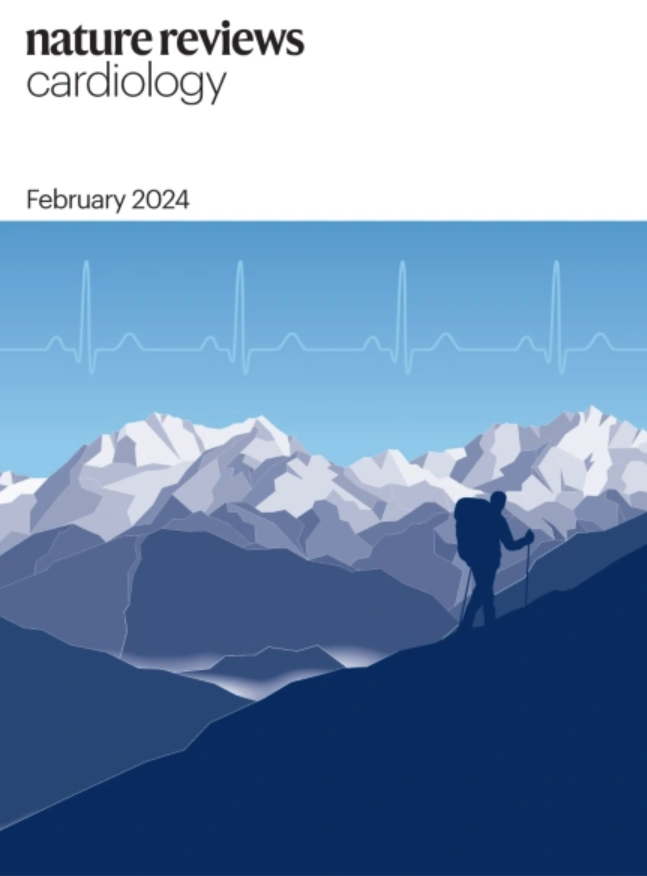针对心肌病的量身定制疗法
IF 44.2
1区 医学
Q1 CARDIAC & CARDIOVASCULAR SYSTEMS
引用次数: 0
摘要
心肌病这个术语是用来描述一个大的家族复杂的心脏肌肉疾病不同的病因和病理生理。几十年来,单个心肌病亚型的管理主要集中在症状管理和疾病相关并发症的预防上,如心力衰竭和心源性猝死。进行性心肌功能障碍的治疗依赖于传统的循证心衰治疗,成功率不一。与其他医学领域相比,心脏病学的特点是很少有病因靶向治疗,但心肌病提供了一个理想的创新模式,因为在许多个体中,这种疾病具有单基因病因,其表达受复杂的遗传机制、合并症和生活方式的影响。对导致下游组织表型的复杂细胞和分子途径的阐明,导致了对新的或重新利用的药理学试剂的研究,同时也导致了对修饰或减轻致病遗传变异影响的疗法的研究,为从源头上靶向疾病提供了前景。在这篇综述中,我们描述了一些最有前途的治疗心肌病的方法,并讨论了它们对患者和亲属生活的潜在影响。本文章由计算机程序翻译,如有差异,请以英文原文为准。

Tailored therapeutics for cardiomyopathies
The term cardiomyopathy is used to describe a large family of complex heart muscle disorders of diverse aetiology and pathophysiology. For decades, the management of individual cardiomyopathy subtypes has focused primarily on the management of symptoms and the prevention of disease-related complications, such as heart failure and sudden cardiac death. Treatment of progressive myocardial dysfunction has relied on conventional evidence-based heart failure therapies, with variable success. In contrast to other areas of medicine, cardiology is characterized by few aetiology-targeted therapies, but cardiomyopathies offer an ideal model for innovation because, in many individuals, the disorder has a monogenic cause, the expression of which is modified by complex genetic mechanisms, comorbidities and lifestyle. Elucidation of the complex cellular and molecular pathways that result in downstream tissue phenotypes has led to the investigation of new or repurposed pharmacological agents and, in parallel, therapies that modify or mitigate the effects of causative genetic variants, offering the prospect of targeting the disease at its source. In this Review, we describe some of the most promising therapeutic approaches in cardiomyopathy and discuss their potential effect on the lives of patients and relatives. Treatment of cardiomyopathies has historically focused on symptom management. In this Review, Elliott and colleagues discuss how elucidation of the complex cellular and molecular pathways has led to the development of novel therapeutic agents that modify or mitigate the effects of causative genetic variants, enabling tailored treatment for cardiomyopathies.
求助全文
通过发布文献求助,成功后即可免费获取论文全文。
去求助
来源期刊

Nature Reviews Cardiology
医学-心血管系统
CiteScore
53.10
自引率
0.60%
发文量
143
审稿时长
6-12 weeks
期刊介绍:
Nature Reviews Cardiology aims to be the go-to source for reviews and commentaries in the scientific and clinical communities it serves. Focused on providing authoritative and accessible articles enriched with clear figures and tables, the journal strives to offer unparalleled service to authors, referees, and readers, maximizing the usefulness and impact of each publication. It covers a broad range of content types, including Research Highlights, Comments, News & Views, Reviews, Consensus Statements, and Perspectives, catering to practising cardiologists and cardiovascular research scientists. Authored by renowned clinicians, academics, and researchers, the content targets readers in the biological and medical sciences, ensuring accessibility across various disciplines. In-depth Reviews offer up-to-date information, while Consensus Statements provide evidence-based recommendations. Perspectives and News & Views present topical discussions and opinions, and the Research Highlights section filters primary research from cardiovascular and general medical journals. As part of the Nature Reviews portfolio, Nature Reviews Cardiology maintains high standards and a wide reach.
 求助内容:
求助内容: 应助结果提醒方式:
应助结果提醒方式:


